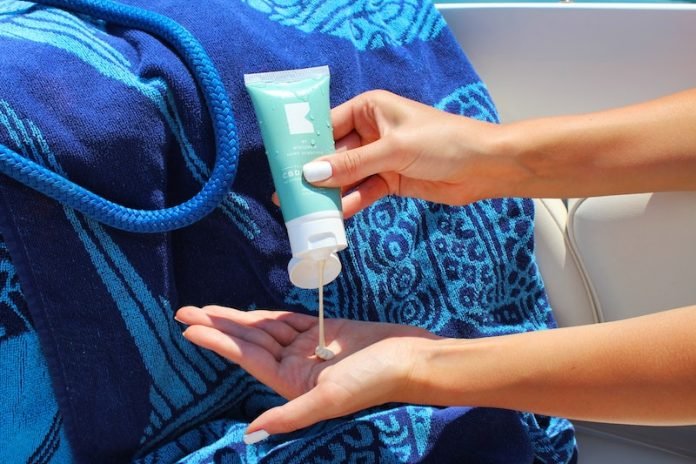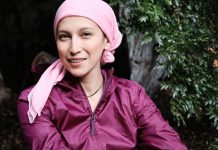
In a new study, researchers found that the common sunscreen ingredient benzophenone-3, also known as oxybenzone or BP-3, can play a role in the development of breast cancer
The research was conducted by a team at Michigan State University.
The researchers focused on BP-3, a ubiquitous and easily absorbed chemical.
Previous studies had found that after just one heavy application of sunscreen, blood levels of BP-3 exceeded the Federal Drug Administration’s guidance for chemicals at a threshold of toxicological concern, and the Centers for Disease Control found BP-3 in 98% of adult urine samples.
BP-3 is also a suspected endocrine-disrupting chemical (EDC), substances that interfere with hormonally regulated processes the body uses for a wide range of functions, including mammary gland development.
under three distinct dietary regimes: a lifelong low-fat diet, a high-fat diet during puberty switching to a low-fat diet during reproductive years, and vice versa.
The experiment split mice on these three diets into two groups. One of these groups was fed BP-3 daily at a dose equivalent to a heavy application of sunscreen on a beach day.
Over the course of a year and a half of treatment, the researchers collected tumors from the mice and found robust evidence for the adverse effects of diet and BP-3 on breast cancer development.
The findings showed that even a relatively brief exposure to a high-fat diet during puberty is enough to allow BP-3 to cause a change in the outcome for cancer.
Nearly all mice developed two kinds of aggressive breast cancer tumors.
The first, known as epithelial tumors, retain many of the properties of normal mammary gland cells.
The second, known as spindle cell tumors, lose most of the properties of normal cells and develop into a deadly, often triple-negative form of breast cancer known as claudin-low breast cancer.
The effects of BP-3 varied depending on a certain type of diet. For example, a lifelong low-fat diet surprisingly acquired some protection against epithelial tumors from the chemical BP-3 but had spindle cell tumors with more aggressive properties.
A high-fat diet during puberty, on the other hand, completely blocked any protective effect of BP-3 and caused epithelial tumors to grow more aggressively.
The last treatment, a high-fat diet during adulthood, promoted aggressive epithelial tumors.
Interestingly, the researchers also found that before tumors appeared, BP-3 increased the growth of normal breast cells on all diets, a known correlate of more aggressive cancers.
They suggest that when there are alternatives, people should stay away from BP-3. For example, zinc oxide and titanium dioxide creams are good candidates.
One author of the study is Richard Schwartz, a professor in the microbiology and molecular genetics department.
The study is published in Oncotarget.
Copyright © 2021 Knowridge Science Report. All rights reserved.



